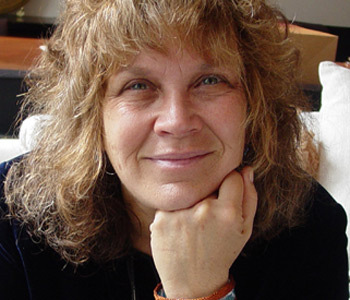Dean Keith Simonton
The Genius Checklist: Nine Paradoxical Tips on How You Can Become a Creative Genius
MIT Press
336 pages, 5 3/8 x 8 inches
ISBN 978 0262038119
The Genius Checklist addresses the most essential questions about identifying, developing, and manifesting creative genius. Some of these questions have been examined by thinkers for centuries. These recurrent issues include: Is genius born or made? Is genius mad? Does genius just require living at the right place at the right time? How much does genius depend on pure luck? Other questions have emerged during the course of scientific research on genius. What IQ score marks someone as a genius? Do geniuses exhibit distinctive personality profiles? Can anybody become a genius if they just devote 10 full years to domain-specific study and practice? Or should the aspirant acquire a tremendous breadth of knowledge and skill? Were geniuses all former child prodigies, or can some become late bloomers? Are firstborn children more likely to become geniuses than their laterborn siblings? What role is played by gender, ethnicity, or socioeconomic class? How does creative achievement change across the life span? At what age are geniuses most likely to produce their definitive masterworks? When are they over the hill? How long do geniuses live? Do the greatest among them die young? And to what extent do scientific and artistic geniuses offer different answers to the foregoing questions?
Now there’s no shortage of books that treat one or more of these questions. Yet some books are scholarly monographs that systematically review the scientific findings without sufficient concrete illustrations for the main points. Others are trade books that rely on ample anecdotes to get their points across, but often with the most minimal connection with the actual science of genius. My book negotiates an intermediate path. Although deeply grounded in the latest scientific results, abundant examples convert the abstractions into a rich narrative. In addition, rather than use the citation formats favored by the scientific disciplines, everything scholarly is hidden in the endnotes; not a single stuffy superscript to be found anywhere. Better yet, to render the science more accessible, I’ve tried to incorporate tongue-in-cheek humor throughout. This humor is most immediately apparent in the book’s title, subtitle, and chapter titles (aka “tips”). In fact, if it’s not obvious from the dust jacket, let me just say it out loud: This book is something of a parody of the all too numerous self-help pieces that fill up the online and brick bookstores.
One warning, though. Some books are designed for dipping. Readers can open up the volume at any page and find something of interest; that author’s presentation thus consists of relatively isolated tidbits. That practice won’t work for a book like mine, where the material is organized in a logical order. Sections build upon earlier sections, and even upon sections that appeared in previous chapters. The upside of this integration is a more coherent understanding of creative genius. That benefit justifies the regimen.
Three points need to be made about how this book covers the subject.
First, although the overview is restricted to creative genius—and thus ignores genius in politics, war, and religion—the coverage of creativity itself is very broad. Virtually all domains of creative achievement are treated one way or another, from the most precise mathematical sciences to the most emotive forms of expressive poetry. This breadth is illustrated by the creative geniuses whose lives and works are drawn upon for illustrations that permeate the entire book: Nicolaus Copernicus, Isaac Newton, Marie Curie, Charles Darwin, William James, René Descartes, Miguel de Cervantes, Fyodor Dostoyevsky, Sylvia Plath, Ludwig van Beethoven, Hildegard von Bingen, Michelangelo, Pablo Picasso, Grandma Moses, Orson Welles, Thomas Edison, Steve Jobs—and dozens more! If that list seems to have overlooked a personal favorite genius, please check the book’s index before emailing me to complain.
Second, although I’m a research psychologist by training and profession, the coverage of creative genius is truly interdisciplinary in scope. Every science that has contributed to the science of genius has its say. So, besides psychology, the contributions of psychiatry, anthropology, sociology, and economics are appropriately presented. In addition, psychology itself is represented by its diverse subdisciplines, including cognitive, personality, developmental, and social. This inclusiveness is absolutely required in any attempt to capture the full complexity of this phenomenon. As in the ancient proverb of the blind Brahmins and the elephant, creative genius is the elephant and the Brahmins are the diverse disciplines and subdisciplines—each appraising a distinct aspect of the beast. Here’s what all the Brahmins told me.
Third, by framing the science of genius in terms of nine paradoxes, I can more easily maintain a balanced representation of the findings. Too often trade books, and monographs as well, adopt one-sided takes on complicated issues, particularly when those issues are highly controversial. An archetypal instance is the enduring “nature-nurture” issue: Are human beings the product of their genes or their environments? This either-or controversy is manifested in the classic question of whether genius is born or made. Tip 3 then advises “Start out as a zygote with super genes / Carefully pick your home and school!” Of course, this advice is ridiculous. But it also underpins a conversation about how every creative genius is inevitably an intricate construction of both genetic endowment and environmental influences. That’s one reason why they’re so rare!
It should be obvious by now that my treatment of creative genius is extremely broad. That breath is nothing new. It reflects a wide-ranging research program that I began in the mid-1970s. That research includes studies of historic geniuses in almost every imaginable domain of human achievement: politics, war, technology, science, philosophy, literature, music, and the visual arts. Furthermore, my work has been published in the professional journals of several disciplines besides various subdisciplines of psychology, namely, education, neuroscience, psychiatry, anthropology, sociology, political science, history, literary studies, physics, engineering, and statistics. Indeed, I’ve had broad interests ever since childhood!
The marketing people at MIT Press asked me to pick out a brief excerpt from the book that might provide the best entry. I answered that the four-page Prologue would do well. Fortunately, they agreed, and so they posted it on their website. It can easily be found by googling “prologue genius checklist.”
The piece begins by describing my bizarre experiences with “neglected geniuses” who were irate about an essay that I published in Nature entitled “After Einstein: Scientific Genius is Extinct.” They begged to disagree, engaging in self nominations. I then turned to the distinctive place creative genius has in popular culture. The media response to the so-called “Genius Grants” bestowed by the MacArthur Foundation provides one illustration. That leads to a topic already mentioned, namely the bifurcation in books about genius. Either you get a scholarly but boring monograph or a fascinating but ill-informed trade book (only in the Prologue I actually provide some sample titles for the latter). I then conclude by noting how my book occupies a unique spot between these extremes. That conclusion includes the justification for conceiving the material in terms of paradoxical tips.
Naturally, I would hope that our hypothetical browser will also take a peek at the back of the dust jacket, where three experts in creativity, giftedness, and genius added some fine blurbs on behalf of my book.
There are other options, too. An actual bookstore browser might just scan the table of contents to pick out a topic of choice and then turn to the designated pages. Or skim the index to see what creative geniuses I used as examples. Or, if the reader is a researcher in the area, they might beeline to the references to see if I included one of their publications in the list. If not, I imagine that the book will be immediately returned to the shelf with an audible humph.
Authors are probably overly inclined to engage in big fantasies about the consequences of their work. After all, even a book that’s only a few hundred pages took a lot of effort to write. Going through the copyediting and proof-correcting phases is by no means fun. Hence, the writer has to look for some compensation down the line.
There are always the forthcoming royalty checks. But here I do not have high expectations. University presses seldom publish bestsellers. Indeed, I’ve long ago stopped visiting Amazon.com to see what my best sellers rank might be. Darn, I was just tempted to look, and right now there are more than 100,000 books that are higher ranked!
Luckily, as a scientist I put a bigger premium on influence. I want the Genius Checklist to exert an impact on what people know about the science of genius. I’d like to get them beyond the popular myths and stereotypes associated with world-class creators. And insofar as the scientific results have any practical use, then may this book lead to real-world applications. Such as helping parents who find themselves with a highly gifted child, or teachers who find that same child disrupting their classroom, or prospective employers who are grappling with a job applicant with a rather unusual résumé once that child grows up.
Who knows? The volume might even enjoy a positive influence on future research as well. A reader might be a scientist who becomes inspired by one of the paradoxical tips to conduct original inquires. Or the book might be assigned in an undergraduate course that then has repercussions when a student later goes to graduate school and selects some issue for their doctoral thesis and later research program—like I did more than four decades ago.
Am I fantasizing again? It’s way too early to know, given the recent publication date. But I’m hopeful. I just learned that the book will be translated into Mandarin and Japanese. So right there I have a substantial increase in potential bookstore and online browsers. Besides, the worst-case scenario is not all that bad anyway. I wrote a book that needed to be written. It was put out by a prestigious publisher that did excellent production and promotion. Plus, I received an invitation for this interview!




We don't put paywalls. We don't distract you with ads. We don't sell your data.
Please help to keep this running!